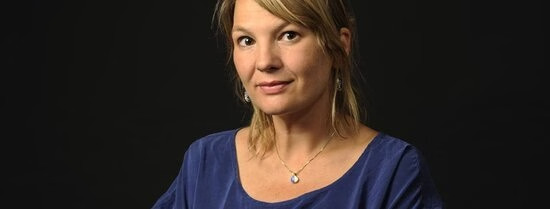Professor of 'Developmental Neuroscience in Society' Eveline Crone and her research team recently started at Erasmus University Rotterdam when the corona crisis broke out. But opening a virtual lab in quarantine, is that possible? Apparently it is! Today they launch the Society, Youth & Neuroscience Connected (SYNC) lab website. Here, scientists, young people, parents and teachers can learn and collaborate on research into the youthful brain.
What is it like to start a new university in times of corona?
"When we settled here and really wanted to start the lab, we had to quarantine. We have digital meetings with the whole team and in working groups. We also have a Slack group, which works really well for us. Communication is easy, fast and efficient, and it's fun. After the crisis we won’t go back to email. Creativity really flows! In a month's time, we sent out a major survey among young people about well-being, and the applications are pouring in. The team comes up with innovative ideas to reach young people".
What is your Chair about?
"I'm doing research on brain development and how that relates to behavior. Until now, the focus of this research has mainly been on the individual and little attention has been paid to embedding it in society. I am referring to how the individual relates to, for example, the social layers in the society in which he finds himself. But also how this research can have an impact on society, and how you can use insights from society to improve research. So it really goes both ways."
Where does your interest in the development of the adolescent brain come from?
"If you want to understand how people function in society, it's useful if you know something about developmental psychology. The most important transition phase is from childhood, where you are dependent on your parents, to adulthood, where you have to abide by the rules of society. I find that transition very interesting. From neuroscience, we discovered only 10 to 20 years ago that the brain goes through a growth spurt as you move into adulthood. From birth until you are 5 to 6 years old, you make most of the brain cells, but with that second growth spurt, there is a decrease in brain cells. So during the first growth spurt you get too many brain cells, and in puberty you prune them, according to the "use it or lose it" idea. So, actually, there's some kind of specialization process taking place."
Why do you think it is important to do research in a metropolitan environment now?
"For a long time I focused on general development among young people. Now, I am curious about the conditions under which young people are doing well and where the challenges lie. In a big city like Rotterdam, there are people from more various backgrounds. I want to discover where the opportunities lie for each group. Not only young people in high socio-economic classes have opportunities.”
In what ways are you trying to generate social impact?
"There is nothing I like more than talking about my work all day. The book 'The Adolescent Brain' for parents and teachers was written out of enthusiasm, I really thought: more people should know about this. I didn't expect it to be such a success (> 100,000 copies sold and translated into 6 languages). And for young people we made the website www.kijkinjebrein.nl. What I really notice is that the more you give, the greater the demand. The brain in development is virgin territory."
You work closely with your research team. Can you tell us anything about your team?
"The team consists of 4 postdocs, 5 PhD students and 3 research assistants and a few researchers from Leiden who remain connected. We come from different disciplines: neuroscience, biology and psychology. However, we are all fascinated by brain development in young people. And what we also share is the enthusiasm about the opportunities to work in Rotterdam. The team members were allowed to choose and they consciously chose to come to Rotterdam because they find the subject so interesting. They really want to work on socially relevant research".
What would you like to give your team?
“I want the researchers in my team to develop in such a way that they become known for three things:
- Excellent science – internationally recognized as a top researcher;
- Forerunner in open science – technological developments now allow us to work with datasets from all over the world, but a prerequisite for this is transparency from research design to implementation and reporting;
- Citizen engagement – improving science by working more with society.
The researchers in my lab may focus more on one quality than on the other, but in the end all of them will master the three qualities".
Do you want to enter into interdisciplinary collaborations in Rotterdam and if so, which ones?
"I'd like that very much. I've never been interested in borders around faculties, or even universities. I have already been able to build a strong collaboration with the medical faculty in Leiden, and I hope to be able to build this at the Erasmus Medical Centre as well. The connection with the business school and sociology is not yet part of my work, but I see many possibilities to collaborate. Yes, I see a lot of new opportunities to work together here in Rotterdam".
- Professor
- Contact
- Related content

